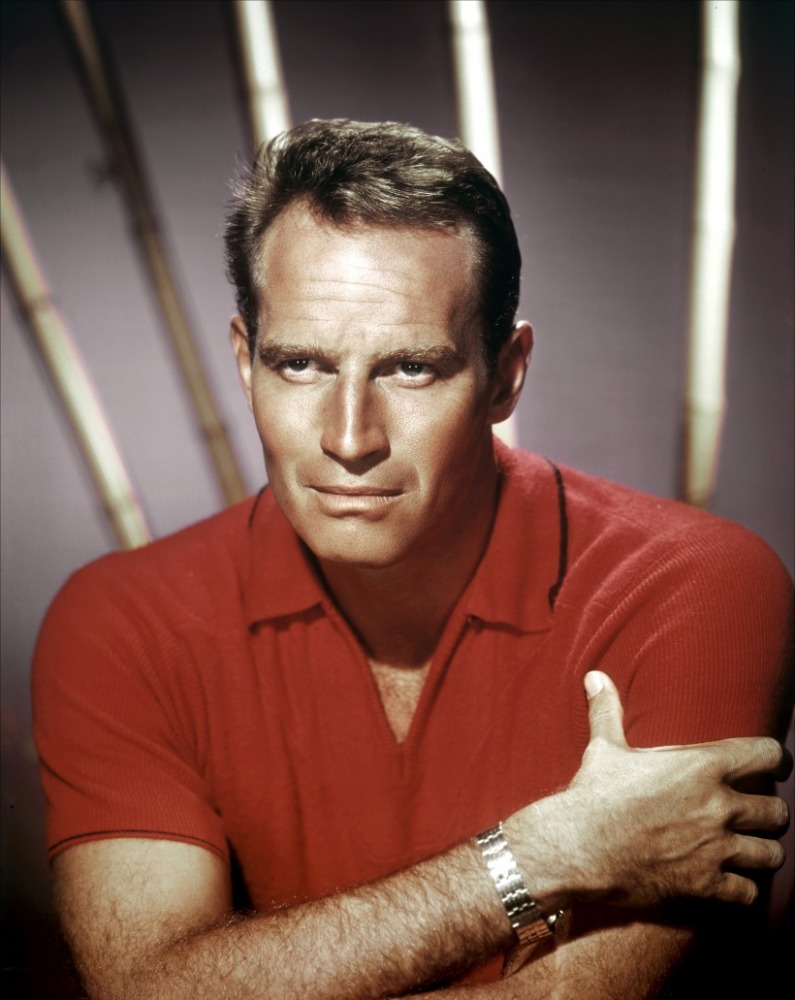Charlton Heston, an iconic figure in Hollywood, was more than just an actor; he was a cultural symbol who captivated millions with his powerful performances. Born on October 4, 1923, in Evanston, Illinois, he rose to fame through a series of memorable roles that defined his career. His legacy as a celebrated actor, activist, and voice for various causes continues to influence generations. Let's delve deeper into Heston's life, career, and the impact he made on the entertainment industry and society.
Charlton Heston's Early Years and Education
Charlton Heston, originally named John Charles Carter, had a humble beginning. He was born to Lilla and Whitford Carter and faced significant changes early in life due to his parents' divorce. When he was an infant, his family moved to St. Helen, Michigan, where he discovered a love for nature through hunting and fishing. This connection to the outdoors would later resonate in many of his film roles.
Heston attended New Trier High School, where he became involved in the drama program. His passion for acting blossomed while participating in the Winnetka Community Theatre. After high school, he pursued higher education at Northwestern University, where he honed his acting skills and prepared for a career in performance arts. These formative years laid the groundwork for his future success in Hollywood.
Career Beginnings: Heston's Rise to Fame
In 1944, Heston joined the United States Army Air Forces, serving as an aerial gunner during World War II. After the war, he pivoted to acting, taking on various roles in theater and television. His breakthrough came in 1948 when he starred in a Broadway revival of "Antony and Cleopatra." The following year, he played Mark Antony in a film adaptation of "Julius Caesar," marking the beginning of his illustrious film career.
Throughout the early 1950s, Heston's talent caught the attention of major studios, leading to significant roles in films such as "Dark City" and "The Greatest Show on Earth." His portrayal of Moses in the 1956 epic "The Ten Commandments" solidified his status as a leading man in Hollywood. This film was a massive success and showcased Heston's ability to embody complex characters and deliver powerful performances.
Iconic Film Roles of the 1950s
The 1950s were a transformative decade for Charlton Heston. He starred in several legendary films that remain classics today. His role in "Ben-Hur" (1959) earned him an Academy Award for Best Actor and established him as one of the top box office draws of the era. This film's success was monumental, winning a record 11 Oscars and becoming a cultural touchstone in American cinema.
Other notable films from this period include "Touch of Evil" and "Planet of the Apes." Heston's performances in these films showcased his versatility as an actor, capable of tackling a wide range of genres from historical epics to science fiction. His ability to connect with audiences and convey deep emotions made him a favorite among filmgoers.
Expanding Horizons: Heston's Career Beyond Film
As the 1960s progressed, Charlton Heston continued to expand his repertoire, delving into television and political activism. He starred in various historical epics and action films, further cementing his status in Hollywood. Heston's commitment to his roles often involved physical transformations and rigorous training, demonstrating his dedication to his craft.
During this time, he also became involved in political issues, using his platform to advocate for causes he believed in. Heston's work with the National Rifle Association (NRA) and his support for various political campaigns revealed another side of his character, merging his passion for acting with a commitment to civic engagement.
Heston's Impact on Television and Later Career
Heston's only main role on a regular television series was in the soap opera "The Colbys," which aired from 1985 to 1987. However, he made numerous guest appearances on various shows, showcasing his range as an actor. He also participated in significant television films, captivating audiences with his performances.
In the 1990s and early 2000s, Heston continued working in film, appearing in projects like "Tombstone" and "True Lies." His final film performance was in 2003, where he portrayed Nazi war criminal Josef Mengele in "Rua Alguem 5555: My Father." Despite his declining health, Heston remained dedicated to his craft until the end of his career.
Personal Life: Heston's Family and Legacy
Charlton Heston was married to Lydia Clarke, a fellow student from Northwestern University. Together, they had two children, Fraser and Holly. Heston's dedication to his family was evident throughout his life, and he often spoke fondly of his wife and children in interviews.
Heston faced health challenges in his later years, including a battle with prostate cancer and a diagnosis of Alzheimer's disease. Despite these struggles, he remained an influential figure until his passing on April 5, 2008, at the age of 84. His legacy as an actor and activist continues to resonate, inspiring future generations to pursue their passions and stand up for their beliefs.
Celebrating Heston's Contributions to Entertainment
Charlton Heston's contributions to the film industry are immeasurable. He was not only a talented actor but also a cultural icon whose work transcended generations. His ability to portray complex characters and connect with audiences is a testament to his dedication to the arts.
As we reflect on Heston's life, we celebrate the impact he made both on and off the screen. His films continue to be enjoyed by audiences worldwide, and his legacy as a passionate advocate for various causes remains a significant part of his story. In remembering Charlton Heston, we honor a life well-lived and the enduring influence he has left behind.
Exploring The Life And Legacy Of Bob Weir: A Rock Icon
Chelsea FC's Historic Sale: What You Need To Know About The $5.2 Billion Deal
Exploring Frances Fisher Net Worth: A Deep Dive Into Her Financial Journey


